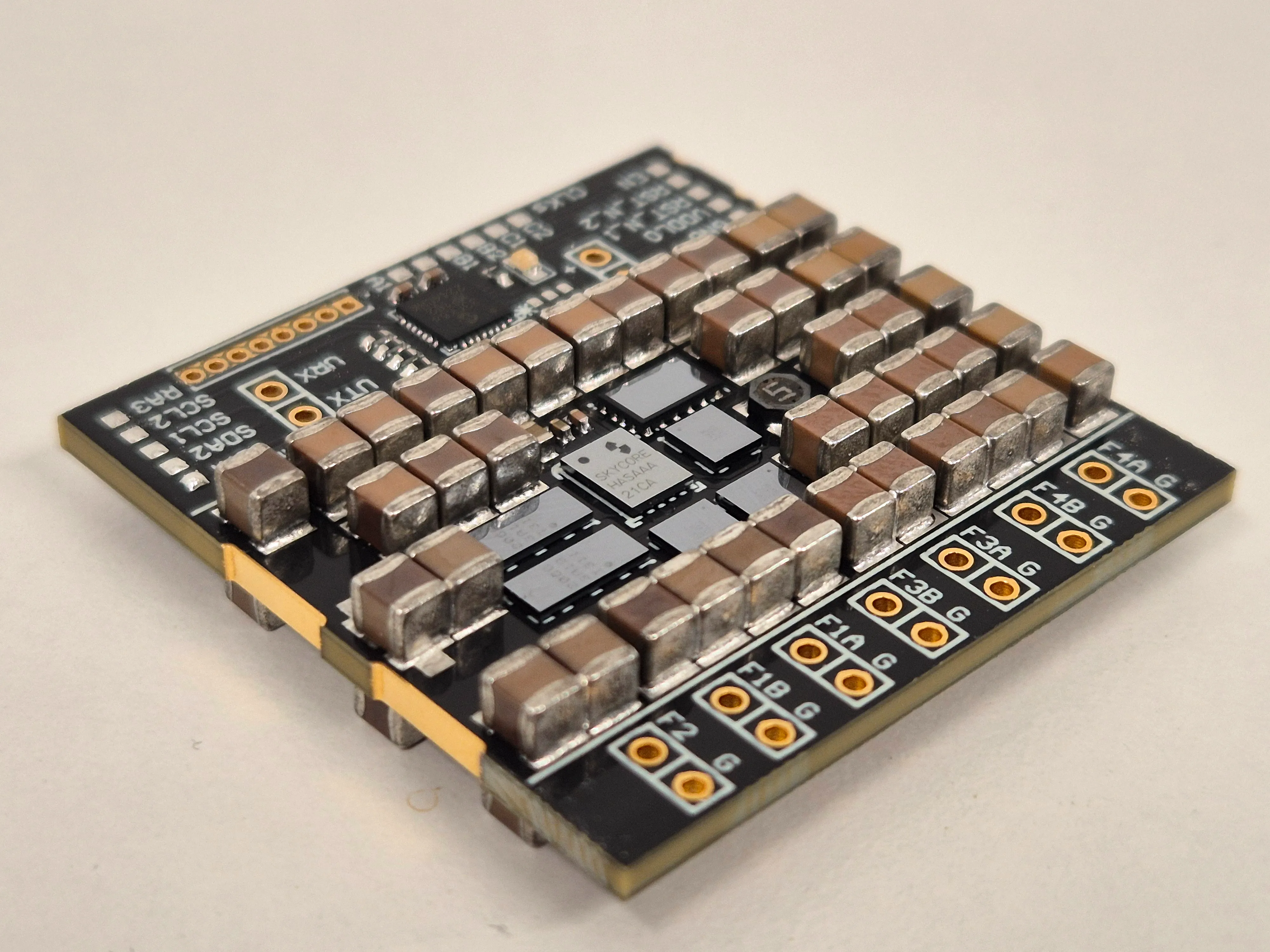First Momentum has backed Copenhagen-based Skycore, the semiconductor startup powering the next generation of AI data centers. While everyone talks about compute, the real bottleneck may be stepping down voltage efficiently enough to feed power-hungry AI accelerators.


Data centers are approaching a fundamental physics limit. Not compute, but power delivery and conversion. Modern AI accelerators are becoming so power-hungry that the intermediate bus converters stepping down voltage from 48V to 12V for GPU racks are hitting their technical ceiling. Nvidia's H100 draws 700W. The new Blackwell chips? 1.3kW each. And Rubin, announced recently, will push power consumption even higher. Current power modules simply can't handle this cleanly.
The numbers are staggering. High-end server racks today consume up to 120kW. Nvidia's announced Kyber racks will eclipse 600kW for 576 GPUs. Future configurations are targeting over 1MW per rack. Traditional discrete inductor-based converters are bulky, inefficient at these power levels, and require multiple units to handle the load - driving up costs and complexity.
"There's going to be a shortage of voltage step-down transformers, before there's even a shortage of electricity."
This is where Skycore enters. The Copenhagen-based team is developing fully integrated switched capacitor converter ICs that can handle kilowatt-scale power conversion in a fraction of the space required by traditional modules.
Skycore's innovation integrates gate drivers, controllers, and protection circuits into a single IC using switched capacitor architecture. This approach has historically been limited to low-power applications, but the research breakthrough enables kilowatt-scale power handling at unparalleled efficiency.

CEO Pere Llimos Muntal has been researching the core technology since 2016, first as a PhD student, then as a postdoc and assistant professor at DTU. His Co-Founder Dennis Øland Larsen joined the research in 2018 after working at an audio amplifier startup acquired by Infineon. Thomas Souvignet and Guifré Vendrell Pausas completed the founding team, both of whom have contributed to the DTU research project since 2020.
What's unusual is how long this team has worked together on the specific problem, over five years of deep collaboration, before founding the company. They've built genuine domain expertise in high-power integrated circuits, an area where most module manufacturers have limited IC design capabilities and rely on external component and IC suppliers.
The timing is perfect. GPU power demands are exceeding what current converter technology can deliver, just as Skycore's platform reaches commercial readiness. Nvidia had to design custom power boards with multiple converters to supply their Blackwell chips, exactly the inefficiency Skycore's compact solution eliminates.
Power delivery is such a fundamental problem that Nvidia is advocating for a complete overhaul of data center power infrastructure, shifting to 800V architecture by 2027.
"Modern GPUs need more and more power. Power equals voltage times current. The higher the voltage, the more we can reduce the current for a given power."
Skycore has moved well beyond typical seed semiconductor timelines. They've taped out first chips and built reference designs with partners. These working prototypes are being demonstrated to module manufacturers, including the largest players in the space. Commercial validation continues to build, with multiple module manufacturers already in discussions.
Skycore's moat comes from several layers. The underlying switched capacitor technology required nine years of research to achieve kilowatt-scale operation. The integration approach combining multiple circuit functions into single ICs demands deep IC design expertise that module manufacturers typically lack.
The platform architecture creates development leverage across applications and voltage levels. And, current module manufacturers source most components externally and focus on assembly or packaging. This leaves them vulnerable to IC innovation that eliminates their value-add.
The data center beachhead opens multiple expansion vectors. Electric vehicles are transitioning to 800V systems requiring sophisticated step-down conversion. Tesla alone would need millions of units annually. Battery storage systems require both high-power conversion and active cell balancing, which are currently inefficiently implemented with resistive methods.
The platform design is crucial. Each application builds on the core platform technology while addressing different technical requirements. The automotive industry demands higher reliability and a wider temperature range. Battery systems need precision balancing across thousands of cells. The IC building-block approach lets Skycore configure converters for various voltage ratios and power levels, using the same foundational technology across applications.
The ultimate vision is to become the power semiconductor company for high-performance compute infrastructure. As AI factories scale toward multi-gigawatt facilities, power delivery and conversion becomes as critical as the processors themselves. Skycore's technology roadmap aligns with these scaling requirements in ways that traditional approaches cannot match.
"We are betting on Skycore becoming the default power chip company for AI data centers" - Dr. Maximilian Ochs, First Momentum
Skycore represents the kind of deep technology investment where engineering depth meets market timing. The power infrastructure supporting AI's exponential growth needs fundamental innovation, not incremental improvements. This team has spent nearly a decade solving exactly these problems.
Learn more about Skycore here.



